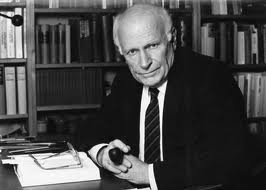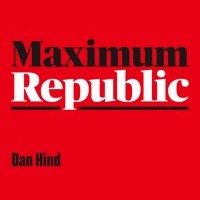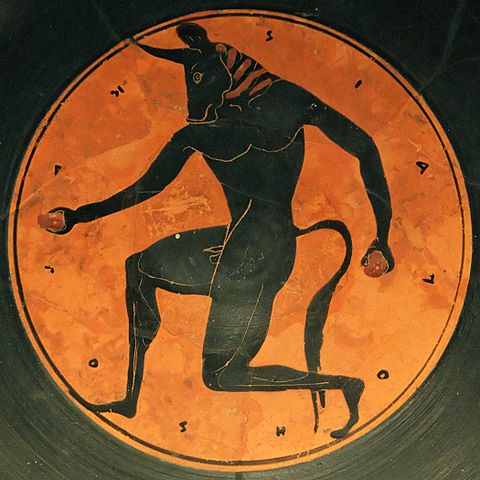
Social democracy must radicalise to survive
Social democracy seems perpetually at a crossroads. But today, more than a hundred years after the first of the parties affiliated to the Second International won a plurality in a parliamentary election (in Finland in 1907; Anderson, 1992, 307), social democrats may finally be running out of rope. All the main European social democratic parties are facing a crisis, registering at long last endlessly postponed questions about their fundamental purpose.

Applying Reinhart Koselleck’s conception of historical time to ideology in America
Last week, I gave a talk at Oxford’s Rothermere American Institute about the German historian Reinhart Koselleck (left) and the relevance of his conception of ‘historical time’ to the study of ideologies in America. We are used to thinking about ideology as a pejorative term — a utopian blueprint for world order with all the consequences that totalitarianism brings. But this is a narrow view. Ideologies are, more broadly speaking, a particular type of political thinking that operates in-between political philosophy and what we can call ‘real politics’ — that is the practical doing (and thinking) that goes on in political life. By ‘in-between’ I mean distinct from philosophy and ‘real politics’, but not mutually exclusive to them. Ideologies are, to put it crudely, where ideas and political action meet; they are ideas with an active prescriptive component which aim for political influence. Ideologies are types of political thought that want to influence political conduct.

Taking Back the Economy: The market as a Res Publica
Republicans seek to protect and promote individual freedom. So do libertarians of the right. The difference? Republicans recognise that the market is constructed through political, public action. Freedom in the republican tradition requires enjoyment of the fundamental liberties with the security that only a rule of law can provide. You must be publicly protected and resourced in such a way that it is manifest to you and to all that under local (not unnecessarily restrictive) conventions: you can speak your mind, associate with your fellows, enjoy communal resources, locate where you will, move occupation and make use of what is yours, without reason for fearing anyone or deferring to anyone. You have the standing of a liber or free person; you enjoy equal status under the public order and you share equally in control over that order. [This post is part of the Democratic Wealth series, hosted by Politics in Spires in partnership with Our Kingdom.]

What do today’s republicans have to say about work?
Historically, republicanism has failed to reconcile the principle of non-domination with the realities of economic life. What do contemporary republican thinkers have to say about work and domination? [This post is part of the Democratic Wealth series, hosted by Politics in Spires in partnership with Our Kingdom. It is Part Two of a two-part piece on the history of republicanism and work]

Revolutionary France and the social republic that never was
After the 1830 revolution, French workers waited for the introduction of the republic into the heart of production. It never came. The struggle that ensued was to shape French politics during the Second Republic and after as republicans sought to reconcile work with the principle of non-domination. [This post is part of the Democratic Wealth series, hosted by Politics in Spires in partnership with Our Kingdom.]

A democratic case for the free market?
Democracy is morally prior to the economy. The structure of the economy is something a sovereign people may and should design and redesign to secure its common good – that is, the shared interest of each and every citizen in life, liberty and economic opportunity. This is the basic premise of the ‘Democratic Wealth’ series that I have the pleasure of editing. This is, however, by no means an uncontroversial premise.

Q&A: Dan Hind, author of “Maximum Republic”
Britain has been fooled. Told that ‘republicanism’ just meant sacking the monarchy, the British have missed its radical vision for the future. James Stern-Weiner, co-editor of the New Left Project, interviews Dan Hind, the author of a new pamphlet that seeks to ignite the flame.

Europe’s Crisis: From solidarity to solitude?
A long time before she relocated to Brussels, Europa was a Phoenician princess. Zeus was particularly fond of her and abducted the princess in the guise of a bull. She bore him a son, Minos, who also had his fair share of trouble with bulls. It was he who constructed the legendary labyrinth to keep the Minotaur at bay. Moreover, it was Minos too, who demanded that Athens periodically sacrifice its best boys and girls to that insatiable creature; half-man, half-bull. Until Theseus finally killed it.
Today, again, Europe has become enthralled by ‘the bull’ and it seems the consequences are equally unfavorable.









